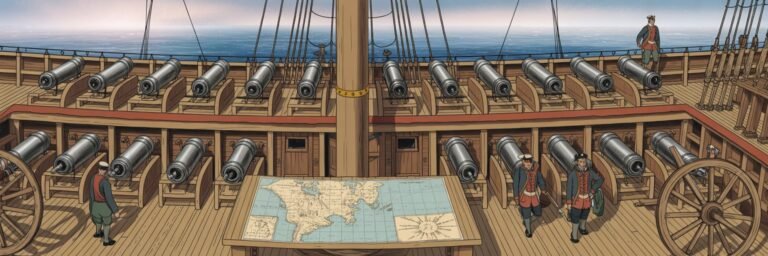INTRODUCTION
The study of history often pivots around the charismatic individuals who dominated their epoch. Equally influential, however, are the conflicts they navigated, the battles they carefully orchestrated, and the victories they announced with great ceremony. A significant leader’s life is often denoted with the wars they fought, as these events epitomize their strategies, their policies, their ethos. In this discourse, we will journey into the annals of global history and shed light on some strenuously fought battles led by iconic leaders — Alexander the Great, Joan of Arc, Napoleon Bonaparte, and Winston Churchill.
HISTORICAL BACKGROUND
It started on the banks of the River Hydaspes in 326 BC when the Macedonian King, Alexander the Great, encountered the Indian emperor, King Porus. The clash at Hydaspes revealed Alexander’s shrewd military tactics and indomitable spirit. Moving further into history, we cruise into 1429 — the Siege of Orleans — where a 17-year-old Joan of Arc took command of the French army and turned the tides of the Hundred Years War.
In the 19th-century, we arrive at the Battle of Austerlitz, where Napoleon Bonaparte’s savvy battlefield tactics overwhelmed the Russo-Austrian forces, crowning him the champion of one of history’s greatest military masterstrokes. Then comes the grim nights of WWII, and the Battle of Britain, where Winston Churchill’s leadership and oratory motivated England to withstand the brunt of the German Luftwaffe.
THEORIES AND INTERPRETATIONS
Historians have argued that Alexander, at Hydaspes, no longer won merely for expansion or glory, but to create a unified world. Robin Lane Fox, a renowned historian, believes the Battle of Hydaspes marked Alexander’s growth from a conqueror to a statesman.
Meanwhile, scholars have examined Joan’s role at Orleans through varied lenses. While Marina Warner, in her book ‘Joan of Arc: The Image of Female Heroism,’ insists that Joan’s success lay in her military acumen, other interpretations suggest it was her pious conviction that played a key role.
Napoleon’s Austerlitz victory is widely acknowledged as a tactical masterpiece. Andrew Roberts, in his book ‘Napoleon: A Life,’ centers on Bonaparte’s innovative use of the ‘central position,’ dividing his enemies and defeating them in detail.
Regarding the Battle of Britain, Andrew Roberts’s ‘Churchill: Walking with Destiny,’ posits Churchill didn’t just inspire resistance, but intelligently used his speeches as a tool to influence the US to join the war.
MYSTERIES AND CONTROVERSIES
The Battle of Hydaspes is stained with the controversy of Alexander’s decision to turn back post this battle. Was it due to his troop’s homesickness, or an astute move realizing the growing difficulty of his mission?
The greatest mystery surrounding Joan of Arc pertains to the ‘voices’ that guided her. Were these truly divine interventions or symptoms of a neurological disorder?
Napoleon, at Austerlitz, is accused by some historians of risking the French army for personal glory as opposed to national interest.
Then, lurking in the Battle of Britain’s backdrop, a controversial theory suggests Churchill knew about the impending Pearl Harbor attack but kept it hidden to draw the US into the war.
SYMBOLISM AND CULTURAL SIGNIFICANCE
Each battle defines a core aspect of its leader. Alexander’s Hydaspes victory symbolizes his vision for a global empire where different cultures coexist. Joan’s triumph at Orleans cemented her legacy as the divine liberator of France. Napoleon’s domination at Austerlitz illustrates his military genius and ambition, while the Battle of Britain exemplifies Churchill’s tenacity and leadership through crisis.
MODERN INVESTIGATIONS
Modern historical research backed by technology has given insightful angles to these battles. Archaeological studies indicate Hydaspes might have seen the first use of war elephants. Linguistics and neurosciences attempt unraveling the mystery of Joan’s ‘voices.’ Georeferencing techniques have refocused examinations of Austerlitz battlefield, contradicting earlier conflict maps. The decryption of secret telecommunication, referred to as the ‘Churchill War Rooms,’ provides fresh perspective on Churchill’s strategies during the Battle of Britain.
LEGACY AND CONCLUSION
The repercussions of these significant battles reverberate through the corridors of history. Alexander’s eastward expansion left lasting cultural exchanges in its path. Joan’s courage underlay the waning of English domination in France. Napoleon’s victory elevated France to a superpower, while Churchill’s leadership during the Battle of Britain instilled a spirit of defiant resilience that resonates to this day.
In conclusion, these battles showcase not just military victories, but the spirit of individuals to strive, to refuse to be dominated, to innovate, and to foster their legacy. In this exploration of famous leaders and their key battles, we not only underscore the interconnection between great leadership and history’s tidal shifts, but we also salute the indomitable human spirit that turns the wheels of time and fate.






